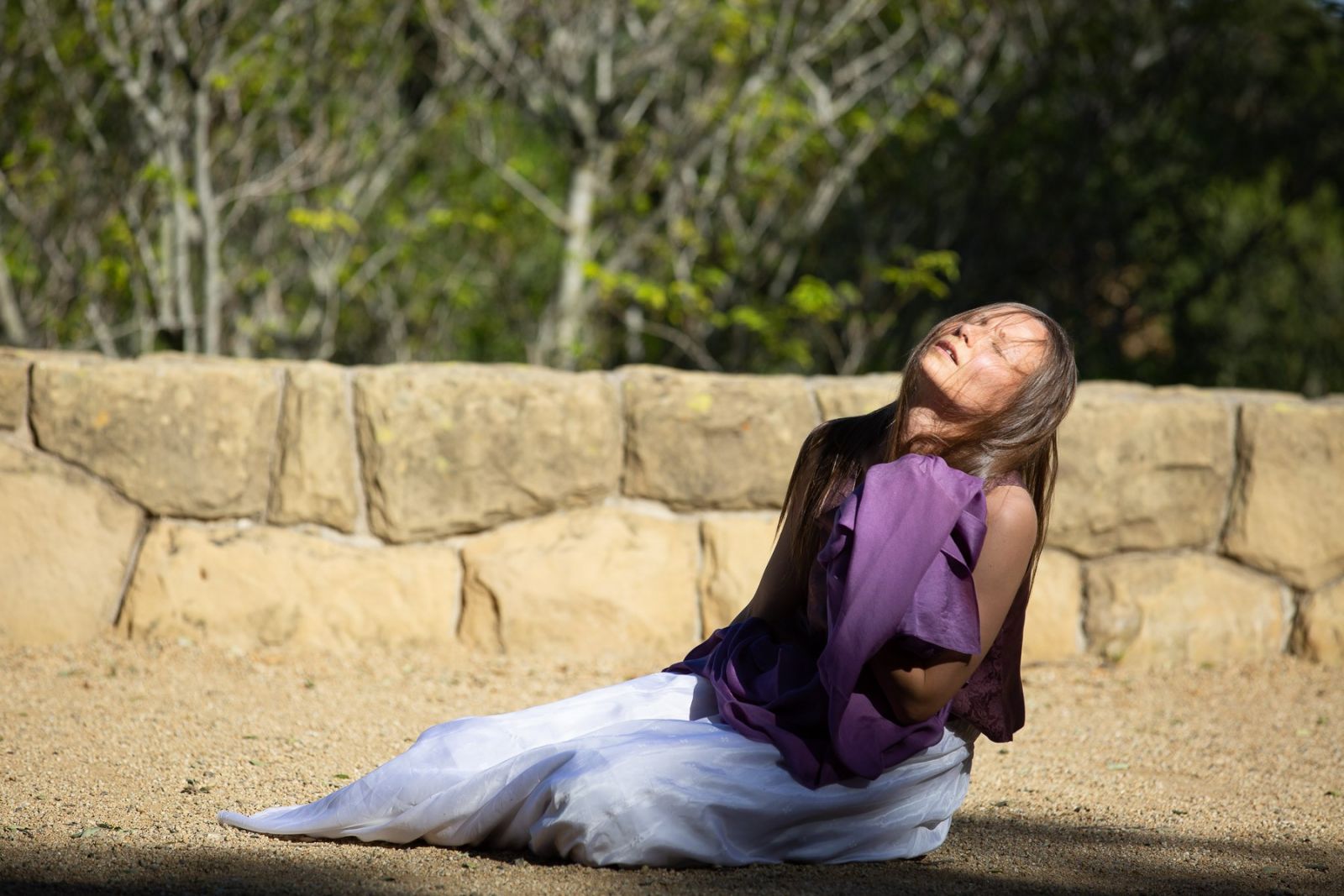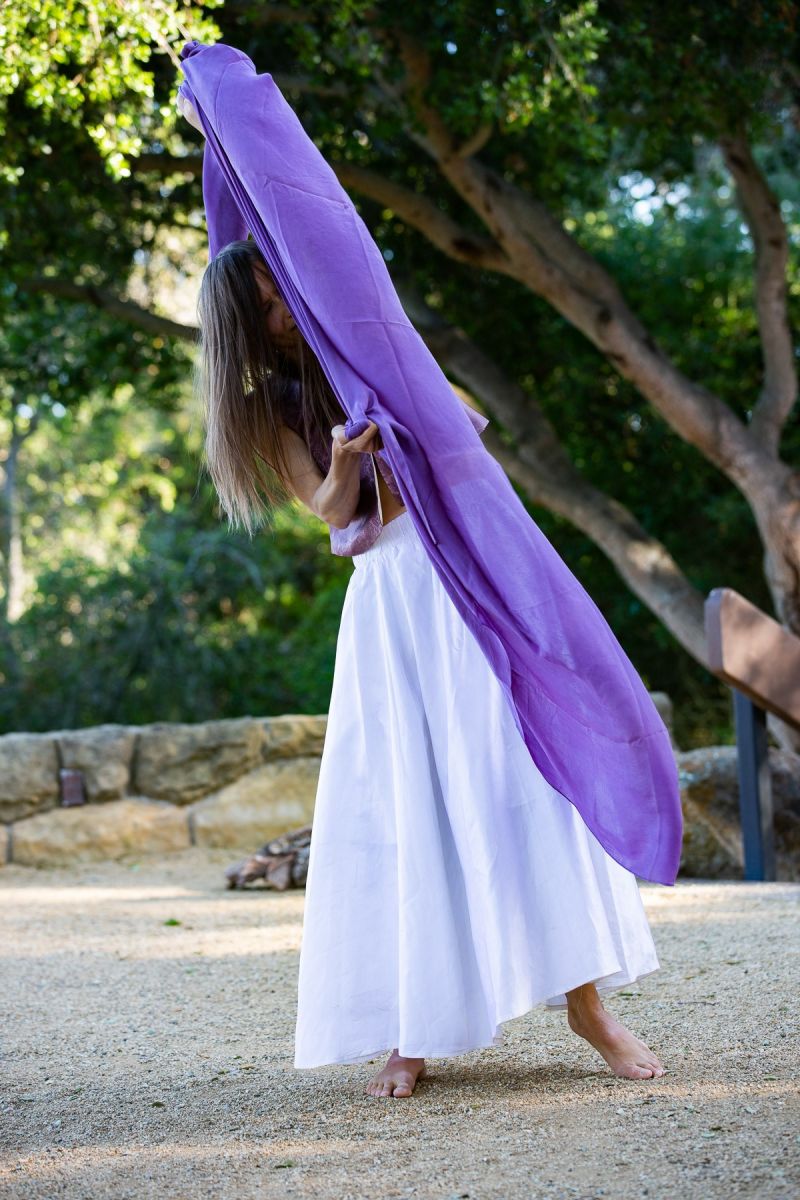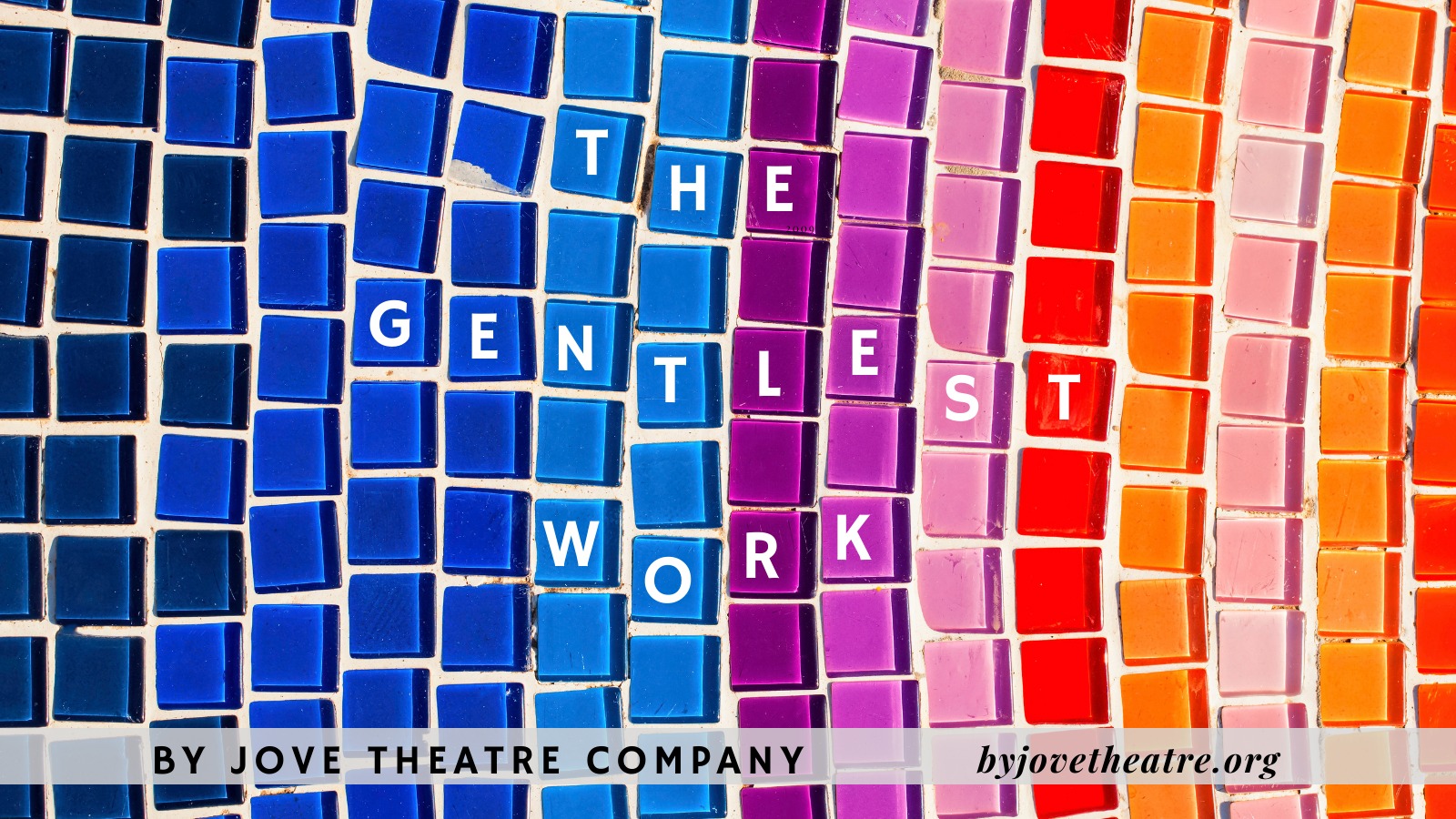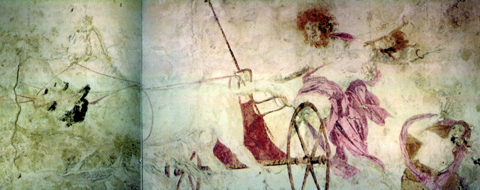Nina Papathanasopoulou
April 23, 2021
The Ancient Worlds, Modern Communities initiative, launched by the SCS in 2019 as the Classics Everywhere initiative, supports projects that seek to engage broader publics — individuals, groups, and communities — in critical discussion of and creative expression related to the ancient Mediterranean, the global reception of Greek and Roman culture, and the history of teaching and scholarship in the field of classical studies. As part of this initiative, the SCS has funded 98 projects in 25 states and 10 countries, ranging from school programming to reading groups, prison programs, public talks and conferences, digital projects, and collaborations with artists in theater, opera, music, dance, and the visual arts.
The Greeks created mythical characters and mythical stories in part to understand themselves: their human nature and its limits, their social and family relations, morality, and the divine. When reading these stories today, many of us are drawn to think more deeply about our own beliefs and values, and to reexamine our relationships and role within our communities. This post centers on three projects that intentionally reinterpret and reimagine Greek mythology to encourage a closer examination of contemporary communities’ sense of identity and purpose, and to provide a means for coping with traumatic and unexpected situations.
Demeter and Persephone, Orpheus, dance, and music
Stuck on campus at the University of California at Santa Barbara (UCSB) and missing their homes and families, international students Olga Faccani, a Ph.D. Candidate in Classical Studies originally from Italy, and Heena Yoon, a Ph.D. Candidate in Music Composition originally from South Korea, turned for consolation to the stories of the Greeks, and to the art of music and dance. The myth of Demeter and Persephone, the daughter violently separated from her mother and natal family, and the myth of Orpheus, the hero whose music could comfort all living beings, spoke to these young women in ways they had not in pre-pandemic conditions. Now, though, Faccani and Yoon — mourning the deaths of distant loved ones, and longing for their families while forced to be away from them — related to Persephone and Orpheus, and to their stories of grief, loss, and nostalgia. Realizing that engagement with these myths could be a powerful tool for others similarly suffering from isolation and separation, they decided to collaborate in creating a short film inspired by Persephone’s story and using music and dance like Orpheus as a tool for expression and healing.
The film, to be released this month, begins with a short introduction to the myths of Persephone and Orpheus, then presents original choreography of a grieving woman, set to an original music composition by Yoon. The dance is inspired by the story of Persephone’s kidnapping and disappearance, from the perspective of Demeter. Dancer Meri Takkinen, who has previously collaborated with Yoon on other multimedia projects, takes on the role of Demeter and dances with a purple fabric: a symbol of the unattainable, her daughter’s loss, her unfulfilled dream. In addition to the music and dancing, the film includes audio testimonies from various people expressing their reaction to COVID-19 and feelings of grief, fear, and desperation in their native languages, such as Greek, Turkish, French, and Chinese. By including audio of many different languages, Faccani and Yoon aim to underline the universality of human experience and human emotions during the pandemic. Their film aspires to speak to everyone affected by the pandemic, no matter their origin, location, or background.
Yoon feels particularly traumatized by the pandemic. Not only did she lose many loved ones during the past year, but she also lost her dream. The music performances she was looking forward to as the culmination of her graduate studies were canceled, casting doubt on her work, her future, and even her purpose in life. The piece Yoon created for the film was an opportunity for her to convey her painful experience and to express her feelings of shock, denial, pain and worry. Composed for the piano, the piece begins in the middle keys but moves down to the instrument’s lowest ranges as the melody becomes distorted and the mood darkens. The title of the piece, “Voice and a Fountain Pen,” suggests a connection with the voices by which ancient myth was transmitted — passed down orally in antiquity — and dramatizes the painful impossibility of connecting (both by voice and by writing, with a fountain pen) to a loved one upon their death. With Orpheus and his soothing music as a guide, Yoon found in her music a source of comfort and strength during these difficult times.
The rich thematic complexity of Greek myths, like that of Persephone, allows each reader an array of possible entry points into the world of interpretation. In the case of Faccani, whose encounter with Persephone’s myth used to focus on the forceful abduction and rape of women, the pandemic led her to appreciate a different aspect of the myth: its celebration of the strength of familial—especially mother-daughter—bonds. In forced separation from her own mother and family, Faccani discovered inspiration in the myth as well as a prompt to reevaluate her relationships.
Faccani and Yoon both hope that their film will provide “a brief moment of collective consolation and reassurance to individuals experiencing the struggle of longing for a distant loved one or mourning for a family member in these difficult times.” As they explain:
The goal of our project is to create a virtual space of empathy, shared emotions, and catharsis in a modern-day, digital equivalent of an ancient amphitheater, where audience members shared experiences and connections. With our reinterpretation of the myths, we hope to provide reassurance and empathy to anyone impacted by the pandemic, and we hope to offer a reading of the myth that can resonate with a broad audience dealing with these difficult issues.


Figures 1 and 2. Meri Takkinen, dancing in an outdoor amphitheater in Santa Barbara, CA. Photos by Kenji Fukudome.
A virtual performance of Odyssey book 24
Laura DeLozier, Senior Lecturer in Classics, Greek, and Latin at the University of Wyoming, is also interested in using Greek myth as a means for bonding and bringing a community together. In collaboration with Paul O’Mahony from Out of Chaos theater in the U.K. and Relative Theatrics, an independent theater company in Laramie, Wyoming, DeLozier organized a virtual performance of book 24 of Homer’s Odyssey in December 2020. This performance was part of Odyssey ’Round the World, a larger project coordinating readings of books of the Odyssey in succession in locations all around the world.
DeLozier has been working on outreach projects in collaboration with Relative Theatrics and their founder, Anne Mason, for over three years. Being the only classicist at the University of Wyoming, DeLozier has regularly sought opportunities for her students to engage with the local community and discuss the post-classical relevance of the Greek and Roman literary works they study. She was drawn to the work of Relative Theatrics because they focus on 20th- and 21st-century pieces by underrepresented artists, and “present thought-provoking theatre that examines the joining qualities of the human race.”
Book 24 captured DeLozier’s attention in particular for the ways in which it invites questions about life’s meaning and moral values, as well as questions about when and how much individuals should make sacrifices for their communities. Is it fair to ask members of one’s community to forget the wrongs done to them so that the community can heal? Book 24 centers this enduring question, but has particular force during a pandemic, as many of us are asked to make personal sacrifices for the sake of our communities and public health.
The performance was created with the benefit of professional casting and direction. Noelia Berkes, Director of Virtual Programming for Relative Theatrics, oversaw lighting, focus, camera angles, costume changes, and casting. As in ancient Greek drama, some actors were cast in more than one role: the actor performing Athena, for example, also performed the role of the dead suitor Amphimedon and Antinoos’s father, Eupeithes, following careful thought by Berkes as to what binds and separates these characters. Berkes gave a pre-show introduction to book 24 written by DeLozier, and DeLozier facilitated a post-show discussion that, in her words:
explored transhistorical and transcultural problems of human societies — in particular patriarchy, gender roles, and social justice themes — including the morality of lying, the role of forgetting in community reconciliation, the failure of dialogue in retributive justice, the systemic oppression of workers, father-son relationships, and agonistic competition between (even dead) heroes.

Figure 3. A screenshot from the virtual performance of Odyssey book 24 featuring, clockwise from the top left: Francesca Mintowt-Czyz as the narrator, Anne Mason as Amphimedon, Peter Parolin as Achilles, and Keith Otani Howard as Agamemnon.
Oresteia and queer identities
On the other side of the Atlantic, Christine Plastow, Lecturer in Classical Studies at the U.K.’s Open University, is also interested in innovative adaptations of classical mythology. As an academic consultant, writer, and dramaturg for By Jove Theatre Company, she is currently working with them and with Nancy Rabinowitz, Emerita Professor of Comparative Literature at Hamilton College, on The Gentlest Work, a digital installation exploring the myth of Orestes and his family through contemporary queer identities and queer interpretations. The Gentlest Work makes use of queer theory and anti-normative approaches to theatrical production alongside themes of memory, trauma, repetition, and family. The project aims to speak directly to queer audiences by focusing on the myth’s queer elements: it portrays Orestes and Pylades as lovers; envisions Iphigeneia as having amorous feelings for Artemis; and promotes Electra’s non-binary relationship with gender as she often thinks about herself as a man. Marcus Bell, an Artistic Associate at By Jove and a Ph.D. Candidate in Classics at Oxford University, explains their vision:
Queer means resisting structural norms. Through The Gentlest Work, we attend to queer characters from ancient Greek myth who unsettle, upset, or disrupt normative systems. Queerness isn’t always radically idealist or straightforwardly idealizing. By observing the disturbing ways that some characters disrupt norms — through murder, capture, and deception — we want to stay with the trouble of encountering queerness in the myths surrounding Orestes, Electra, Iphigenia and Clytemnestra. And yet, queerness suggests otherwise. In The Gentlest Work, we invite the audience to recount these myths with us; to celebrate joy amidst, within, and despite the trauma; to be gentle with ourselves as we go; and to think and feel another way forward, together.
The Gentlest Work, scheduled for release in June, will be an immersive and interactive digital experience where audience members will be given access to a great variety of online materials — videos, audio dialogues, ancient and contemporary poetry, images — as well as to numerous paths through which to discover that material. They will be able to explore what happens to these mythical characters before, during, and after the events of Aeschylus’ Oresteia. Audience members will also be able to leave comments and interact with other audience members who are perusing the installation simultaneously.

Figure 4. Poster for By Jove Theatre Company’s The Gentlest Work.
By Jove Theatre Company, whose name not only evokes ancient Roman exclamations but also suggests that their work will generate surprise and wonder, put on a women-centered adaptation of Oresteia as their first play ten years ago. Returning to the myth through this innovative approach aimed primarily at the LGBTQ+ community is a key moment for the company’s development. Plastow describes the forward-thinking approach:
This process disrupts traditional theatrical performance, allowing for a sense of direct connection and interaction between audiences and performers that will facilitate achieving our primary goal of speaking directly to queer audiences.
The above projects display the richness and multivalence of ancient Greek myths and highlight their ability to provide comfort, strength, and opportunities for reflection to individuals and communities thousands of years later. The figures are ancient, but their experiences cross space and time.
The next round of applications for Ancient Worlds, Modern Communities grants is due May 14, 2021. Apply here.
Header image: Hades abducting Persephone. Fresco in the small royal tomb at Vergina, Macedonia, Greece. 340 BCE. Image courtesy of Wikimedia Commons.
Authors


